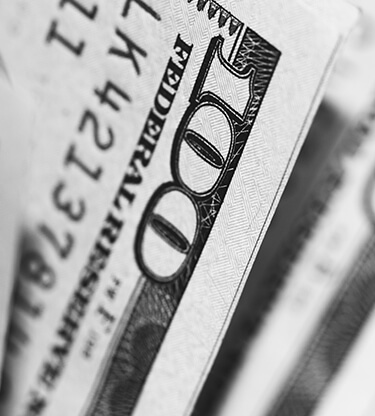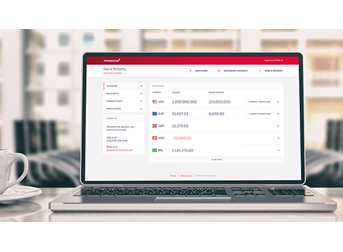Daily Market Pulse

President Trump and first lady Melania test positive for Covid-19
5 minute readUSD
As widely expected, the economic activity in the U.S' manufacturing sector expanded at a slower pace in September than it did in August with the ISM's Manufacturing Purchasing Managers' Index (PMI) falling to 55.4 from 56. The ISM report suggests that strong manufacturing activity will continue in the coming months. However, the market seems to have ignored this report, with the USD dropping 0.16% for the fourth straight session. Meanwhile, the House passed a $2.2 trillion Democratic fiscal stimulus package on Thursday night but failed to reach an agreement with Republicans on the plans. Although the Government and the Democrats did not reach an aid agreement, they agreed to continue talks. The breaking news early today, President Trump and first lady Melania test positive for Covid-19. In some way, this story may have some degree of influence on the currency market today. Data being released later today consists of: August’s US factory orders report; final US consumer sentiment numbers from the University of Michigan; U.S Labour market report.
EUR
Traders and investors are watching with concern as coronavirus infection rates continue to rise in the Eurozone, as well as being cautious over an uncertain Brexit. Madrid will become the first European capital to go back under city-wide lockdown measures after a surge in Covid-19 infections, in a dramatic move that demonstrates the growing intensity of Europe's battle against an increase in new cases. Yesterday, the EUR rose 0.25%, erasing previous losses from the day before. The EUR was mostly supported by new PMI data. According to the survey's output index, manufacturing activity rose to 57.1 in September from 55.6 in August, indicating the fastest manufacturing production growth since February 2018, however, this recovery was increasingly reliant on Germany. Today, market participants will keep an eye on September’s flash eurozone CPI, which will measure the eurozone inflation under the influence of a stronger EUR.
GBP
Brexit deadlock is once again dominating the GBP’s movement. Yesterday, the Sterling edged down 0.21% against the USD in a session marked by its high volatility, after the EU yesterday announcing that it has sent a formal notice to the UK, in relation to the Internal Market Bill, beginning legal proceedings against the U.K Government. Moreover, Von der Leyen said the deadline had lapsed and the UK had failed to live up to its obligations to act in good faith. Today, volatility is likely to be high again throughout the session, with eyes on the conflicting Brexit headlines waiting for a reaction to any progress, or lack thereof, in the week’s final talks.
JPY
The Japanese yen edged up 0.42% earlier this morning, with data showing Japan's consumer confidence improved in September. The survey's sentiment index for general households, which includes views on incomes and jobs, jumped to 32.7 in September from 29.3 in August. The index, however, indicates that a reading below 50 suggests pessimism in relation to the country's economic situation. Throughout the week, the JPY, a safe-haven currency that tends to gain during periods of uncertainty, barely moved (+0.22%), suggesting that Japanese economic recovery will be long and difficult.
CAD
On Thursday, the Loonie rose 0.3% against the USD, gaining some ground for the second straight session. However, further gains were capped due to a sharp drop of 3.7% in U.S. crude oil futures. The CAD also found support after strong data from Manufacturing PMI. The IHS Markit Canada Manufacturing Purchasing Managers' Index (PMI) rose to a seasonally adjusted 56.0 in September, its highest level since August 2018, adding to evidence of economic recovery from the Covid-19 crisis. Today, investors await crucial U.S. labour figures for a read on economic recovery.
MXN
The MXN jumped as much as 1.3% for the second session in a row after optimistic data from the Manufacturing PMI on Thursday. The seasonally adjusted IHS Markit Mexico Manufacturing PMI improved from 41.3 in August to a six-month high of 42.1 in September. The latest results also showed an improved trend for business sentiment, albeit the index was still in contraction territory. Following six months of pessimism, companies on average became optimistic that output will increase over the course of the coming 12 months.
CNY
Chinese markets are closed for a week-long holiday.
BRL
The BRL fell 0.6% against the greenback while Brazilian shares Ibovespa closed up 0.79% on Thursday. The session was marked by a mixed sentiment after the Brazil Stock Exchange (B3) reported that foreign investors withdrew more than BRL 88bn from the Brazilian stock market in 2020, in transactions in the secondary market (purchase and sale of shares that are already on the stock exchange). On the other hand, rising from 64.7 in August to 64.9 in September, the HIS Markit Brazil Manufacturing Purchasing Managers’ Index (PMI) signaled the strongest improvement in the health of the sector since data collection started in February 2006. According to the statistic firm, "Several companies of the Brazilian manufacturing PMI panel suggested that softer Covid-19 restrictions helped them to secure a healthy number of new orders, with a depreciation of the Brazilian real versus the US dollar supporting the first rise in exports in over a year. In response, businesses continued to expand their workforces and lifted production accordingly”.

